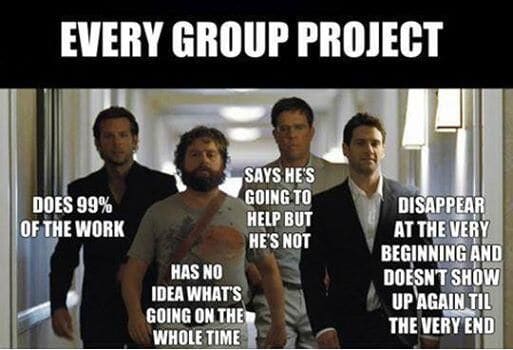Disclaimer: I can only speak for myself, as this article is based on my own personal experience attending a 6 month coding boot camp in 2019. I graduated with a certificate of completion from the University of Washington Coding Boot Camp, where I was introduced to the MERN stack (MongoDB, Express, React, and Node).
It's important to note that although offered through University of Washington, the coding boot camp I attended was part of Trilogy Education Services. You can check out more here.
Everyone's experience will vary, and so will the quality of coding boot camps. In addition to reading about my experience, I suggest you research, research, and then do some more research!
If you've been on the internet for the past couple years, then you might have noticed an influx in coding boot camp ads popping up on your feed. I certainly did about a year and a half ago when I was also looking for some kind of direction in my career.
I knew I wanted to learn to code, that was certain. I had some HTML knowledge and knew a bit of CSS, that was it (thanks Myspace and MailChimp). My dream then (and still) is to make apps and tools that enrich lives, whether they're helpful, instill joy, or just make you laugh. What that will entail? I'm not yet certain, but last year I didn't feel I could do it on my own.
After researching coding boot camps in my area, I landed on the University of Washington Full Stack Coding Boot Camp by Trilogy, a bit of a risky move considering there had only been one cohort at the time. Because it was so new, there were no reviews or articles floating around, but I felt better being familiar with University of Washington and knowing it to be a reputable institution.
I've always been a bit impulsive 🙈, so I took the leap and quickly got to work on the pre-work they assigned: getting my computer up and running, some basic HTML and CSS, and a little bit of intro to JavaScript. The pre-work made me feel confident and like I had the experience in the bag before starting. That didn't really turn out to be true... but I'll get into more of that in the cons section later.
But first, let's talk about the good stuff, because at the end of the day, I do not regret going, I want to make that clear. I just want to make sure others are aware of what they're signing up for.
Pros
Having Direction
I'm the kind of person who goes to the gym and will aimlessly do a few curls, maybe run on the treadmill for 15 minutes, and then walk around wondering what to do next for the remainder of the time with a deer in headlights look. I crave having direction and for that reason, boot camp was a good fit for me.
By signing up, I had a clear learning trajectory and knew I was on my way to learning Git and the MERN stack. This gave me a roadmap, as I was completely confused on which languages and frameworks to focus on in a sea of options. My Google search history included things like "Which language is best to learn in 2019" and "What is the difference between front end, back end, and full stack?"
Full stack seemed like the best bet, given how so many companies seem to be looking for super human developers who can pretty much do it all... from designing beautiful, accessible home pages, to sending queries to a database. This is overwhelming from the perspective of a newbie (or anybody), so having a path helped.
Git Pro (pro used loosely)
Git is one of those things I'm incredibly grateful I had the opportunity to learn in a classroom, because it can be incredibly confusing. By working on group projects (3 main projects specifically), I was able to learn how to use Git, create new branches, and manage a repository with multiple people.
After some inevitable messes, and some trial/error, I graduated the program feeling pretty confident in my ability to manage a GitHub repository, and even got more comfortable using a CLI in the process. These skills can only be valuable in a developer environment.
Confused about the difference between Git and Github? You're not alone!
In simple terms...
Git is a version control system that lets you manage and keep track of your source code history
Github is a cloud-based hosting service that lets you manage your Git repositories
Group Projects
This one might be confusing because you'll see it under pros and cons. But first let's talk about the good.
By working on 3 main group projects, I was able to build up a small portfolio out of boot camp. Even if your group project is in MVP stage (minimum viable product), it could be the start of something great if you commit to keep working on it.
Some team members may even want to stay linked after boot camp ends so you can keep working on those projects. Most of the coding I retained during my experience was the coding I did during these group projects. This is where I learned to code with others, debug, and even gained project management skills.
Cons
Job Prospects
This section is not here to make you think you won't be able to get a developer gig straight out of coding boot camp. I just want to be transparent because it may not be the shortcut you think it is. In my class of about 30, only a small handful have successfully found jobs since graduation last August in 2019 (myself not included).
I knew that finding a job wouldn't be immediate, but I wasn't prepared for what it would really be like to enter the job market. I was certainly under the impression I would be more job ready upon graduation. All the marketing materials I saw advertised focused on job placement and less on material.
Finishing up the boot camp, and being handed a certificate is incredibly rewarding, but your journey doesn't end here. You might be one of the few that land a job right out (and that's an incredible achievement you should be proud of), but job or no job, you will need to work hard. Having a foundation is great, but you need to continue to water those skills so they can grow.
That means staying on top of technology, studying, putting in actual coding time (not just following tutorials), not to mention the job search itself. And let's face it, life is hard and it takes a lot of energy to make these things a habit, especially if you're already working full-time.
My own reasoning is that I experienced some burnout after going hard on the job search out the gate. I also am fortunate to have a solid career now and am in a stable place while I continue to bolster my skills and confidence in coding.
It's a competitive market and it's tough for entry-level. But don't let that stop you from trying. 💪
Steep Pricing
Without going into the nitty gritty, my experience was expensive and I have some debt to show for it. With the amount of cheap to free resources online through sites like Udemy, I'd really weigh all pros and cons before signing up.
I agreed to it because it felt like a solid investment in myself. But it's worth bringing up cost, as this makes it not accessible to everyone. You may be able to take out a loan. Additionally, some programs may offer financing options.
Some boot camps will even defer paying tuition until you successfully secure a job, so definitely see if that's an option during your search!
Group Projects
Now for the scary part of group projects, which anyone who has participated in a group project will already know: Not everyone is going to pull their weight. I tend to be a type A personality in group project scenarios and take lead. For this reason I ended up in the Project Manager position for all 3 main projects.
I would have loved to spend less of my time managing time and others, and more time on the actual code, but this wasn't the case. Now you could say this is just like the real world, however the consequences of just not doing your job are much more dire in the real world than they are at coding boot camp.
Now initially this was just going to be a pros and cons article, but then I realized a third section is crucial... so for that reason:
If I could somehow go back and redo coding boot camp, here is what I would do differently
Okay that title is a bit wordy, but hear me out.
First and foremost, I would ask more questions. I can't tell you how many times the teacher would say "any questions?" and... uncomfortable silence. Some of us were probably scared to break the silence, but I'm willing to bet that many people, like me, hesitate to ask questions for similar reasons:
Pride: Yep, that ego takes a bruising sometimes and it's ok. You are not making yourself look stupid (or revealing yourself to be an impostor) by asking questions. That's what the teacher and TAs are there for!
Confusion: There were times I didn't ask questions because I had TOO many questions and I simply didn't know where to begin. Don't let the possibility of asking what you think is a "dumb question" prevent you from asking any at all
A Better Foundation
Having a better foundation of basic JavaScript concepts would have been hugely beneficial in my boot camp experience and would have certainly saved me a lot of stress. Coding boot camp is an intense, fast-paced experience and there were nights I came home feeling absolutely crushed by JavaScript.
Having the core concepts of JavaScript down is highly recommended. The JavaScript 30 challenge is a great way to start. I also rely heavily on the MDN web docs. I've also heard many excellent things about FreeCodeCamp!
In addition to knowing some basic JavaScript, I'd recommend having a solid understanding of some CSS Basics. Because of time constraints, CSS was only a small focus (2, 3-hour sessions).
Granted, this will depend on the boot camp and where the focus lies. Because my focus was on MERN, CSS and design were secondary. Bootstrap is an awesome framework for getting started.
Syntax isn't Everything
I got so caught up trying to remember all of the syntax, forgetting all of that is just a quick search away if you need it. This led to me often feeling overwhelmed and like I wouldn't be able to grasp anything (or keep it straight).
Rather than focusing on syntax, focus on what the code is doing. How the code works is infinitely more important than the syntax. Too many times I would get bogged down by the wall of code in front of me, only to leave class feeling overwhelmed and like things weren't clicking.
Things will click with time, remember that.
Realistic Job Expectations
As I write this article, I can say I have yet to find my first web developer job. And that is okay. But I want to be honest about how long it took me to come to terms with being okay. I knew job searching would be tough, but I didn't realize how long of a process it would be for me, or that I would experience burnout.
I thought I would have a job in months, a year at the most. But by setting these expectations upon myself, I only ended up overworking, and completely burnt out by the end of 2019. I felt like I had let myself down because of these unrealistic expectations I had set in place.
Some people do find jobs straight out of coding boot camp, for others it may be longer. But one thing is sure, you will need to put in the work. I only recommend doing it at a reasonable pace and making sure to value work/life balance.
I'm overall happy with my decision to go because although stressful at times, it only cemented the fact that this is what I really want. The knowledge and skills I picked up in those 6 months have only continued to help me as I continue to learn and figure out my path.
So if you're interested, and are the type that excels with structured fast-paced learning, definitely check into it!
I'm also an open book and am happy to answer questions about my experience, so don't hesitate to reach out. 😊




















